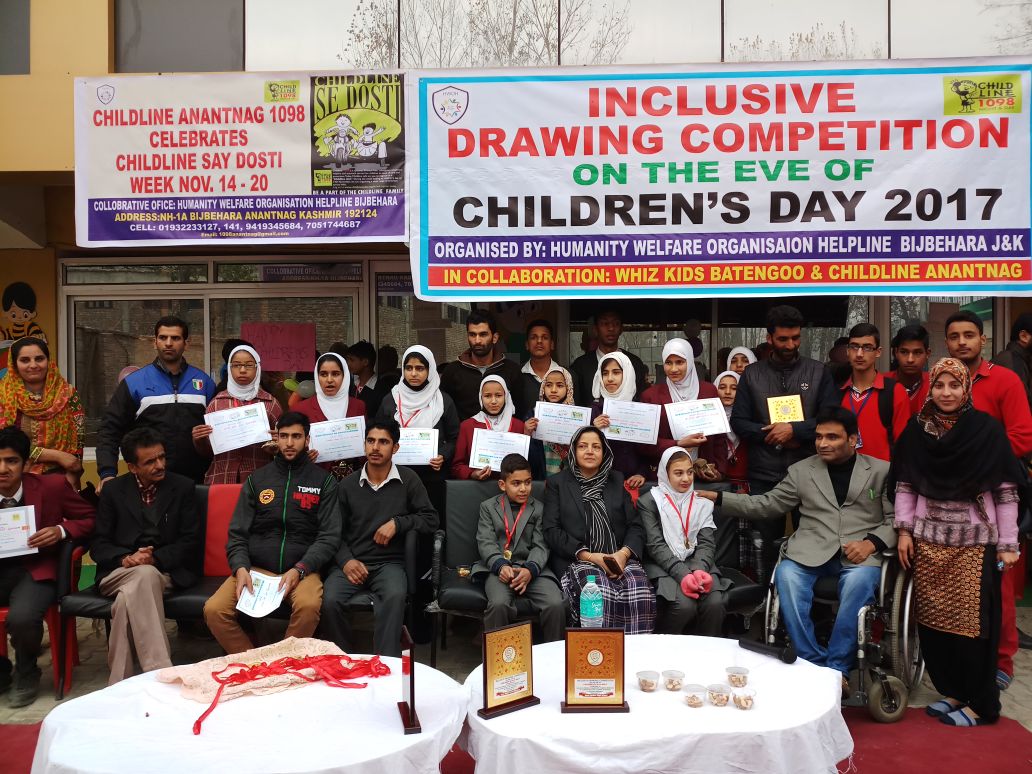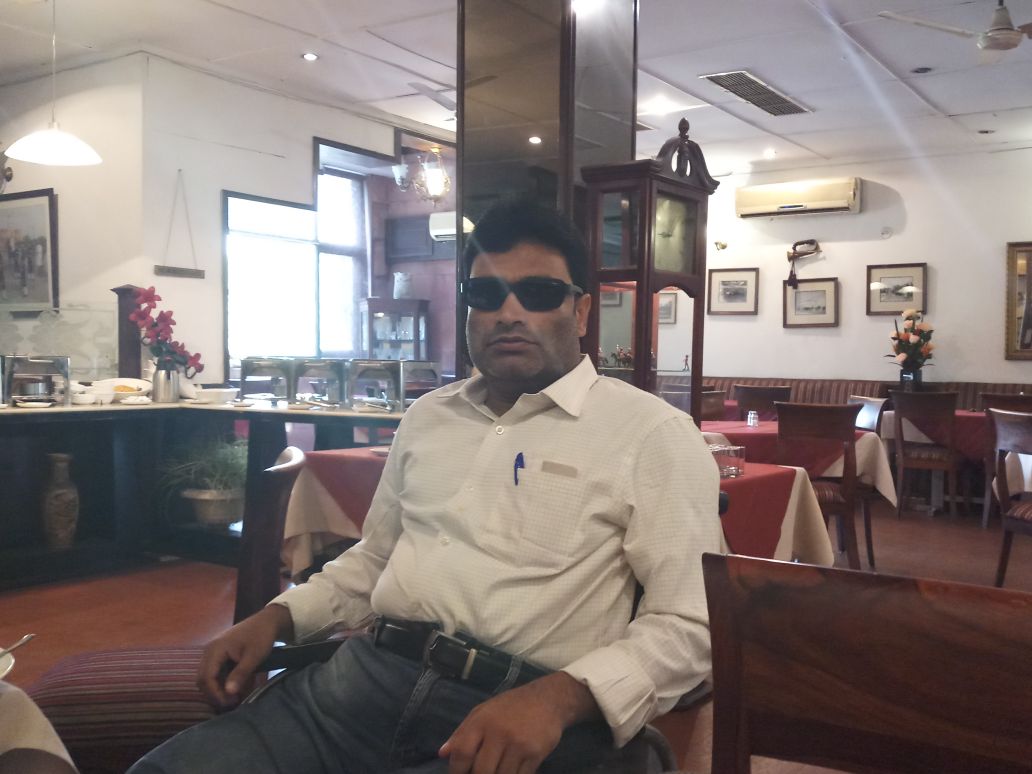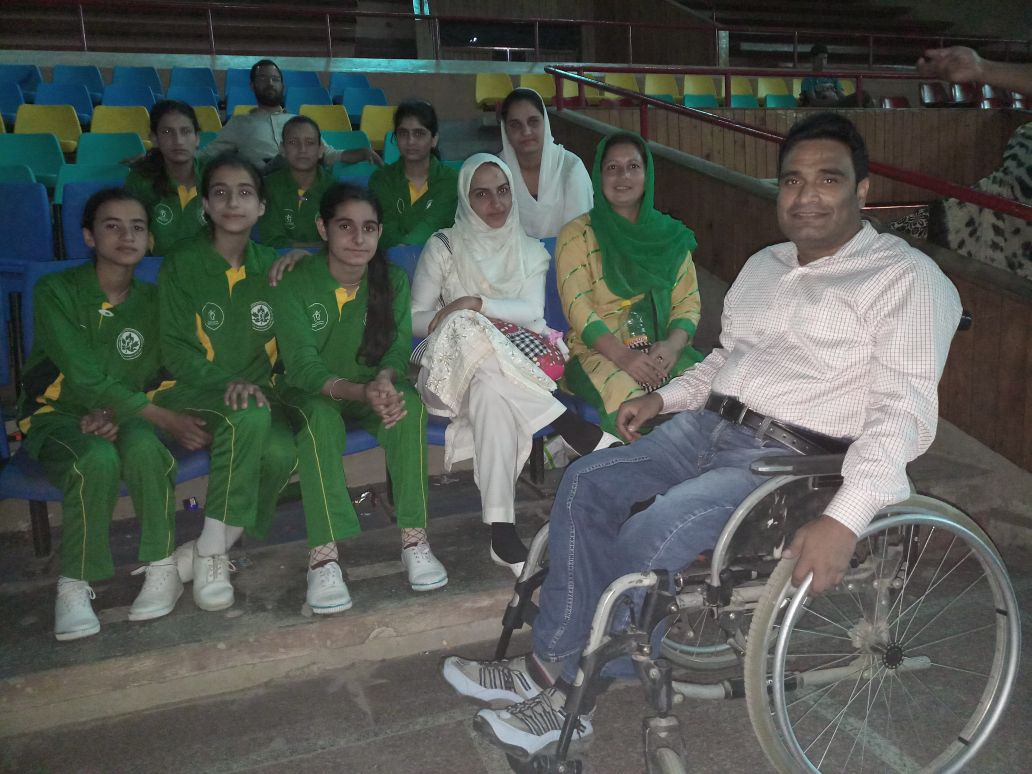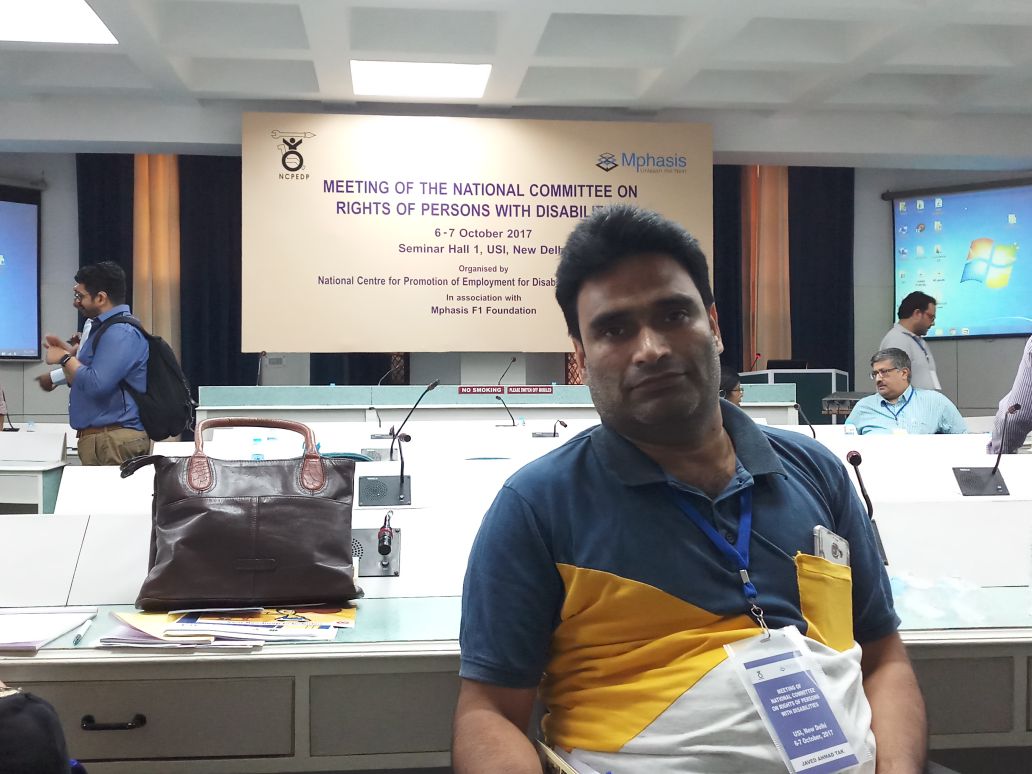After Militants Shot Him, Kashmir’s Specially-Abled Children Found a New Champion
Tak has worked to uplift the status of specially-abled children at the school and university levels.

As per records from NGOs, there are currently around three thousand specially abled, but educated, youth in Jammu and Kashmir who are unemployed.
This even keeps them out of family life, as a lack of a job means they get no marriage prospects.
Meanwhile, the Supreme Court has approved a three percent quota for persons with disability (PwD) in government jobs.
The reservation has been an appreciated policy as it allows for the recruitment and hiring of PwD candidates. But sadly not many people have benefitted from this scheme, due to a simple lack of awareness.
There is not a single Braille version book available in government schools for blind children. There are no special educators for deaf and dumb children in the schools either.

“I have seen students being afraid to drink or eat anything as they fear that they may have to use the washroom since the schools in our state are not disable friendly,” says Javed Ahmad Tak.
These are just a few of the numerous problems encountered every day by the specially abled community in the valley. But for a good number of them, especially the children, the future is not so dark – thanks to Tak.
A single bullet changed this man’s life forever. But after battling many hurdles in society, he has been fighting to make a difference. A victim of the conflict, this 41-year-old man is now transforming lives of many specially-abled children in Kashmir.
In South Kashmir’s Bijbehara town, around 45 Km from Srinagar, the then 21-year-old Tak was shot during a militant attack, changing his life forever. “It wasn’t just the spine, my kidney, pancreas and intestines were also damaged, and I had to go through several surgeries. ” the now 41-year-old Tak says.
You may also like: From Sports to Music, This Kerala Organisation Is Helping the Blind Fulfill Their Dreams
Tak always wanted to help others. During his college years, he participated in various campus activities like anti-smoking campaigns, eco-friendly campaigns, the integrated Pulse Polio immunisation program and much more.
But Tak’s parents wanted him to become a doctor, so he studied medicine.”My parents wanted me to become a doctor, but fate has something else written for me,” he says. ‘Something else’ is accurate. He was in the hospital for almost two years and received his news of his graduation on a hospital bed.
After the tragedy, naturally, his state of mind was disturbed and unsettled. To find solace and something to do, he started teaching. As most of the families in his neighbourhood came from poor backgrounds, he also began to provide them with free education.
This inspired him to continue his own studies. Now he holds two degrees from Indira Gandhi Open University in Human Rights and Computing and a Masters in Social Work from Kashmir University. “I came to know how to use different techniques as a social worker and how to work for the welfare of the physically and mentally challenged through this course,” he says.
He didn’t stop there. He soon started working for the rights of the physically and mentally challenged in the valley.

“It is only by becoming disabled that my vision of the world changed. It hurt me deeply when I realised the problems that disabled people have to face every day,” he says.
He started filing public interest litigations in the J&K High Court advocating against the miserable conditions of the physically and mentally challenged people in J&K. In many cases, he was successful as well. He also started writing complaints to the Human Rights Commissions – both at local and national level.
“One complaint that I filed was concerned with the Government of Jammu and Kashmir (J&K) which was not providing any attention towards affected people in the leper colony in Srinagar. The Chairperson of the State Human Rights took cognisance of the complaint and directed the government to take steps for their rehabilitation.”
He also worked to uplift the status of specially-abled children at the Universities level. Most universities lack facilities for physically challenged children after all.
“During my time in the MSW course at Kashmir University, I organised students with physical challenges so they could put pressure on university’s authorities to address their absent rights,” he says.
“Working with children gave me the real meaning of life,” he says. “I would have never had such dedication to humanity if I would not have met with the attack. Nowadays, I feel blessed for what happened to me, a blessing from God and his everlasting kindness. Although I am a person with a severe disability, I operate in society at the academic and professional level. I have got a number of rewards for my perseverance and social actions.”
You may also like: Cancer or Blindness, These Kids Didn’t Let Anything Come in the Way of Acing CBSE Class 12 Exams
He received Rs 75000 as compensation by the state government after the attack. He used that money to open a school, the Zeba Apa institute for specially-abled children in 2007.
It remains the first and only mixed disability school in the valley.
Initially, he started it up to the fifth standard. Now he has extended it to eighth standard and hopes extend it further in the future. More than 120 students have directly benefitted from the school. The first batch comprised of 23 students. But this year the roll call is up to 87, of whom 17 have played national level sports and will compete in games like badminton and javelin throw.
Around 31 deaf and dumb children, originally dropouts, have joined Tak’s school because they faced discrimination or a lack of facilities for them at the government level.

Tak says the most significant challenge that the institute faces is that there is lack of transport facility. “If we had better transport facility, we would have more than 200 students enrolled in our institute; we have only two busses for which we are still paying the instalments.”
Tak initially rented a single room to teach the students. But thanks to the overwhelming response he received from some NGOs, he was able to rent a building. In a difficult situation, and after facing such personal pain and tragedy, it is wonderful how people like Tak are bringing much-needed light in the lives of children.
Like this story? Or have something to share?
Write to us: [email protected]
Connect with us on Facebook and Twitter.
NEW: Click here to get positive news on WhatsApp!
If you found our stories insightful, informative, or even just enjoyable, we invite you to consider making a voluntary payment to support the work we do at The Better India. Your contribution helps us continue producing quality content that educates, inspires, and drives positive change.
Choose one of the payment options below for your contribution-
By paying for the stories you value, you directly contribute to sustaining our efforts focused on making a difference in the world. Together, let's ensure that impactful stories continue to be told and shared, enriching lives and communities alike.
Thank you for your support. Here are some frequently asked questions you might find helpful to know why you are contributing?


This story made me
-
97
-
121
-
89
-
167














